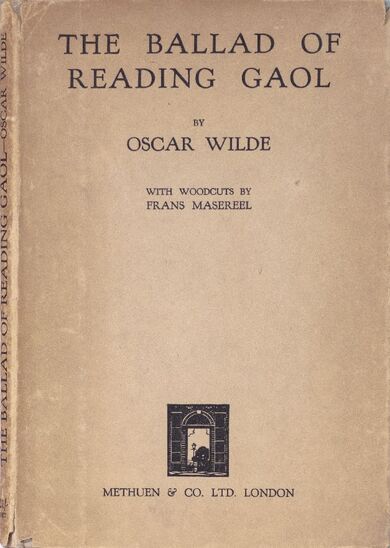
Requiescat
"Requiescat" by Oscar Wilde is a tragic elegy based upon the death of Wilde's younger sister Isola, who died at the age of 10. Wilde composed this early poem in his teens and easily represents one of his strongest poems that he wrote outside of "The Ballad of Reading Gaol" his undisputed poetic masterpiece.
"Requiescat" or "May She Rest" therefore has added significance with this in mind. It is a sombre and saddening piece, beautifully crafted work which evokes a strong sense of sympathy in its readership. It is a short poem consisting of five stanzas only, but despite of this it is a highly memorable piece.
The rhythm of this moving poem is slow and gently tilting, it reminds you of a slow funeral procession and takes place at the grave side of a young innocent girl. In the first stanza there is what many consider to be a slightly unusual expression whereby the narrator still insists that she is alive. Perhaps this is just part of the mourning process but either way it is touchingly phrased:
Under the snow,
Speak gently, she can hear
The daisies grow.
In this stanza you can instantly feel the pace and rhythm of the poem and the insistence that she still feels "she is near" "she can hear". The narrator's plea to "tread lightly" and to "speak gently" is a moving and intriguing part to add to the piece. The significance of the daisies does not go amiss to those familiar with the poetic symbolism which they represent, that of natural, unassuming and earthly-bound beauty.
In the next two stanzas he laments her natural beauty and innocence commenting about her "golden hair" which as "Tarnished with rust" and that she was "Lilly-like, white as snow" she was a girl who grew "sweetly" and is sadly is no more.
The penultimate stanza represents a change in tone, perhaps also representing the changes in the process of mourning. It opens with cold, hard language which shuts off the previous light of the description of the child.
Lie on her breast
It is literally like a lid has been shut upon the joyful description and memory of the girl. The narrator also feels alone in this stanza, something which is also the way people can feel during a process of mourning, he says "I vex my heart alone" but then concedes that "she is at rest". At least in this last line there is a moment of light once again, as rest has a peaceful connotation in this case. This is however just a momentary null as the narrator unleashes his full loss dramatically in the final stanza of the poem:
Lyre or sonnet,
All my life's buried here,
Heap earth upon it.
It is the last two lines which really impact the reader of this elegy. The pain and finality in the last two lines really adds a sense of closure to this poem, as we pity the narrator in his absolute loss. However it is perhaps the construction of the piece as a whole and the development of the mourning process that we feel the narrator will be able to cope in the future, even if his love for this girl will never fade.
Although often usually associated with plays of light social comedy or the public scandal surrounding his name, this poem shows that Wilde's abilities tailor to much more than that. Even as we feel sorry for his tragic loss, we understand that it is a pain which we all must feel at some stage in life. If there is a comfort in that it is that we all learn to live with loss, and understand that we don't suffer alone, we share it with others and remember those whom we loved in life together.










